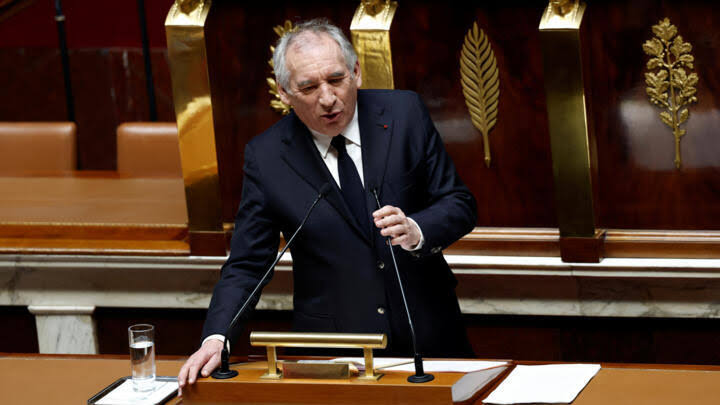
French Prime Minister François Bayrou, in an interview with LCI television news late on Monday, stated that the levels of immigration in France are creating a feeling of being “flooded,” a phrase frequently used by the far right to incite fear.
“Contributions from foreigners can be beneficial for a society, provided they remain within reasonable limits,” Bayrou expressed. “However, once people start to feel overwhelmed, feeling that they no longer recognize their own nation, its way of life, and culture, this leads to rejection,” he added, indicating that “we are nearing” such a point.
He noted that “specific cities and regions” are presently experiencing it.
These comments appeared to be an attempt by the prime minister to appeal to the anti-immigration far-right National Rally (RN) party, which significantly influences the political future of the prime minister. Bayrou requires widespread backing—from both the far right and the center-left Socialist Party—to evade the same fate as his predecessor, Michel Barnier, who was compelled to resign in December.
This controversy arises at an inopportune moment for Bayrou, who is scheduled to present a delayed budget proposal for 2025 in February, aiming to steer clear of the kind of no-confidence vote that resulted in Barnier’s dismissal over budget disagreements.
The prime minister’s comments sparked an immediate backlash from the left, with Socialist deputy Arthur Delaporte asserting that they stemmed from “xenophobia.”
The notion of “migrant flooding” (submersion migratoire) has its origins in the 19th century but gained prominence in the 1960s, thanks to Dominique Venner, a figure admired by the French far right. Venner took his own life at Notre-Dame Cathedral in 2013, apparently in protest against the legalization of gay marriage.
His ideas regained traction with Jean-Marie Le Pen, who founded the far-right National Front party in 1972. The party rebranded as the National Rally in 2018 and is now led by his daughter, Marine Le Pen.
These beliefs eventually evolved into the “Great Replacement” theory, a concept introduced by author Renaud Camus in his 2011 book of the same name. Camus warned that a significant influx of immigrants from Africa would result in the replacement of White and Christian demographics, ultimately reducing them to a minority. He claimed that Europeans and Westerners would subsequently have a foreign culture imposed upon them.
However, actual data contradicts the fears of a “flood,” revealing that the percentage of migrants has only increased by about 3 percent over the past fifty years. According to INSEE, France’s national statistics agency, there were 7.3 million immigrants in 2023, representing 10.7 percent of the total population of 68.1 million, whereas immigrants constituted 7.4 percent of the population half a century ago.
The left quickly condemned Bayrou for endorsing far-right narratives. Manuel Bompard, leader of the far-left France Unbowed party, described the comments as “extremely shocking,” emphasizing that they “didn’t align at all” with the actual immigration statistics.
Cyrielle Chatelain, leader of the Green Party in Parliament, stated on franceinfo radio on Tuesday that she was also “extremely shocked” by Bayrou’s “disgraceful” comments.
“We are not witnessing migrant flooding. It is the prime minister’s responsibility to remind us of this and not to propagate false beliefs.”
Boris Vallaud, leader of the Socialist parliamentary group, criticized Bayrou, labeling it “shameful” for him to “adopt the language and fantasies of the far right.”
Bayrou’s assertions also received criticism from his own party members. National Assembly speaker Yael Braun-Pivet stated on BFMTV on Tuesday, “I would never have made such statements, and I feel embarrassed by them.”
“I do not use these terms, nor will I ever, as I believe they contradict our true essence,” she stated.
Many supported the prime minister’s position. Hardline Justice Minister Gérald Darmanin commented during an interview on the far-right channel CNews that he found Bayrou’s comments to be “brave,” even implying it represented a “positive development.”
Elected officials from the National Rally party expressed the greatest approval of Bayrou’s statements.
“I believe we have long since won the ideological struggle. (…) For quite some time, the French population and the government have recognized that there is an issue with immigration,” remarked Sébastien Chenu, deputy leader of the party, on France Inter radio.
Chenu went further, stating that Bayrou should be prepared to take concrete steps to support his assertions.


